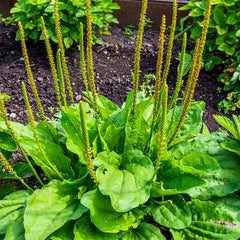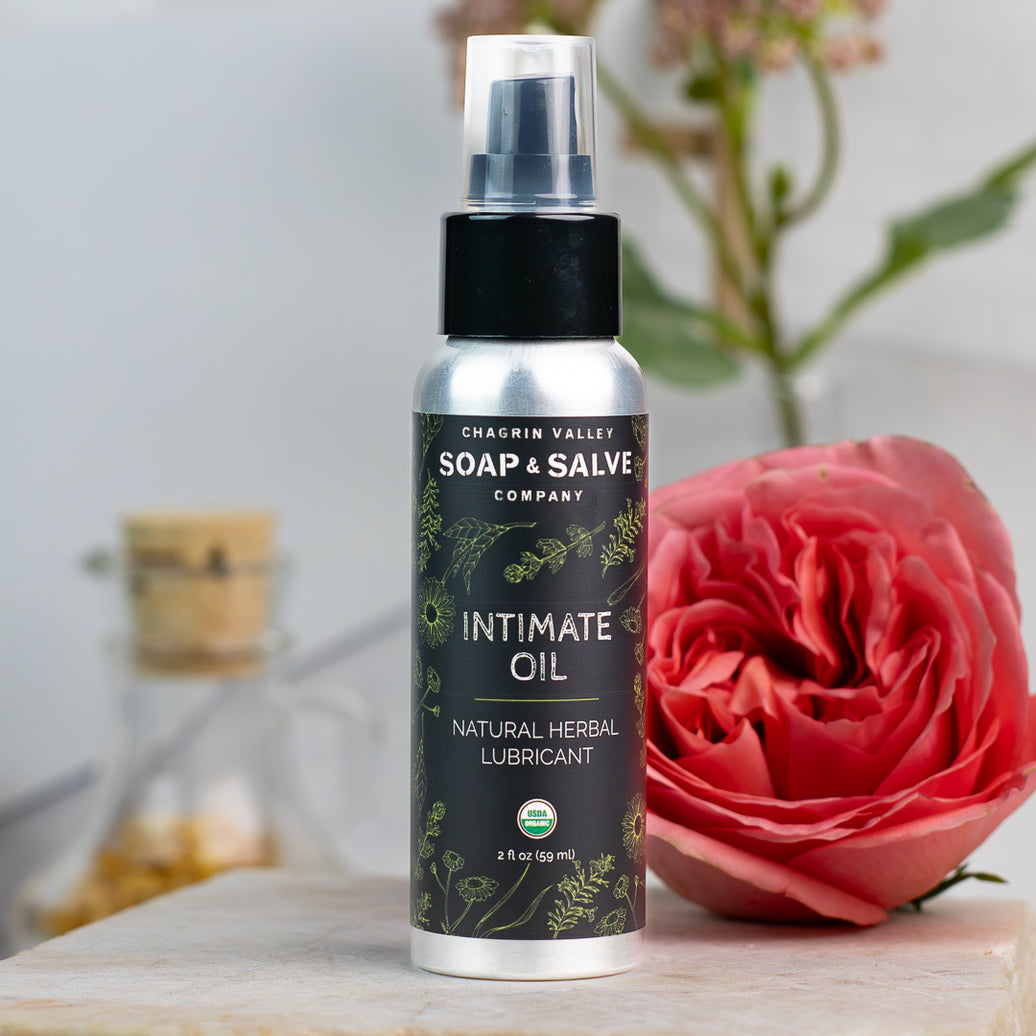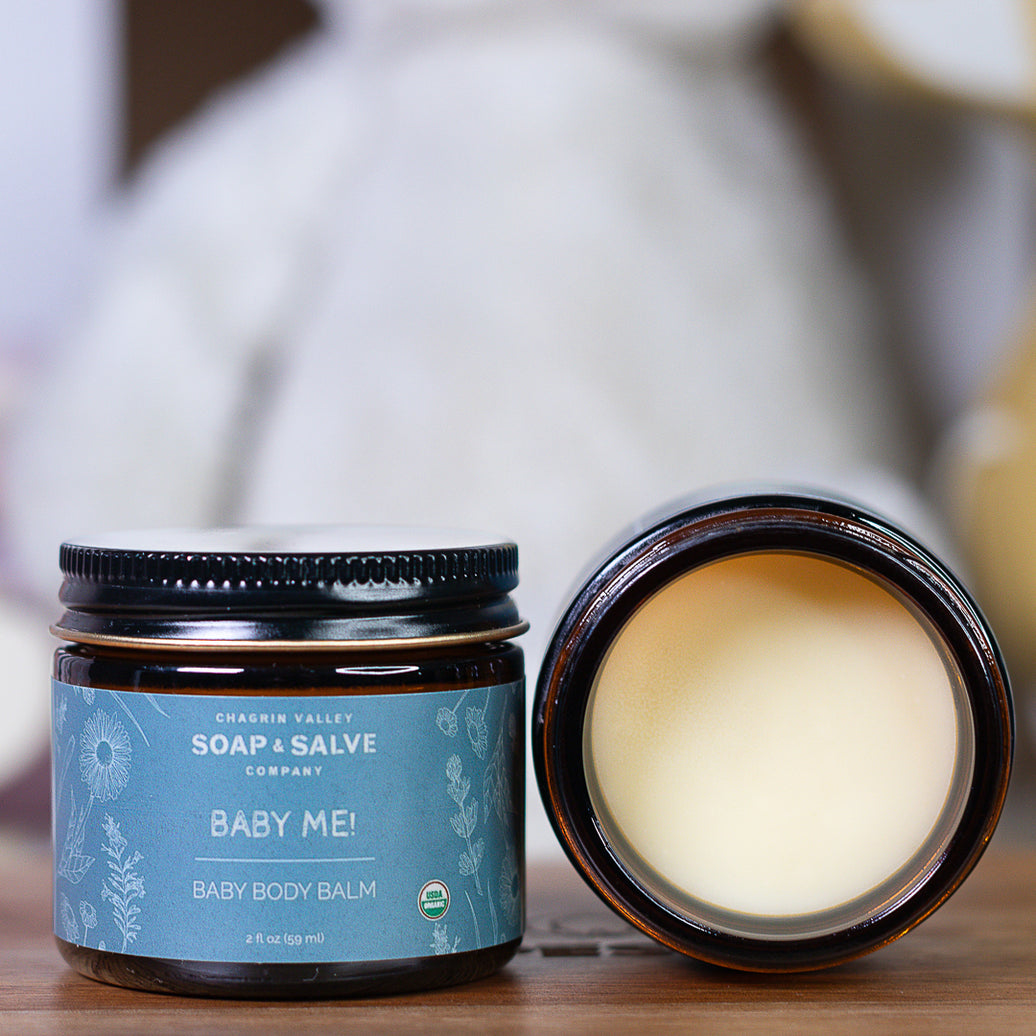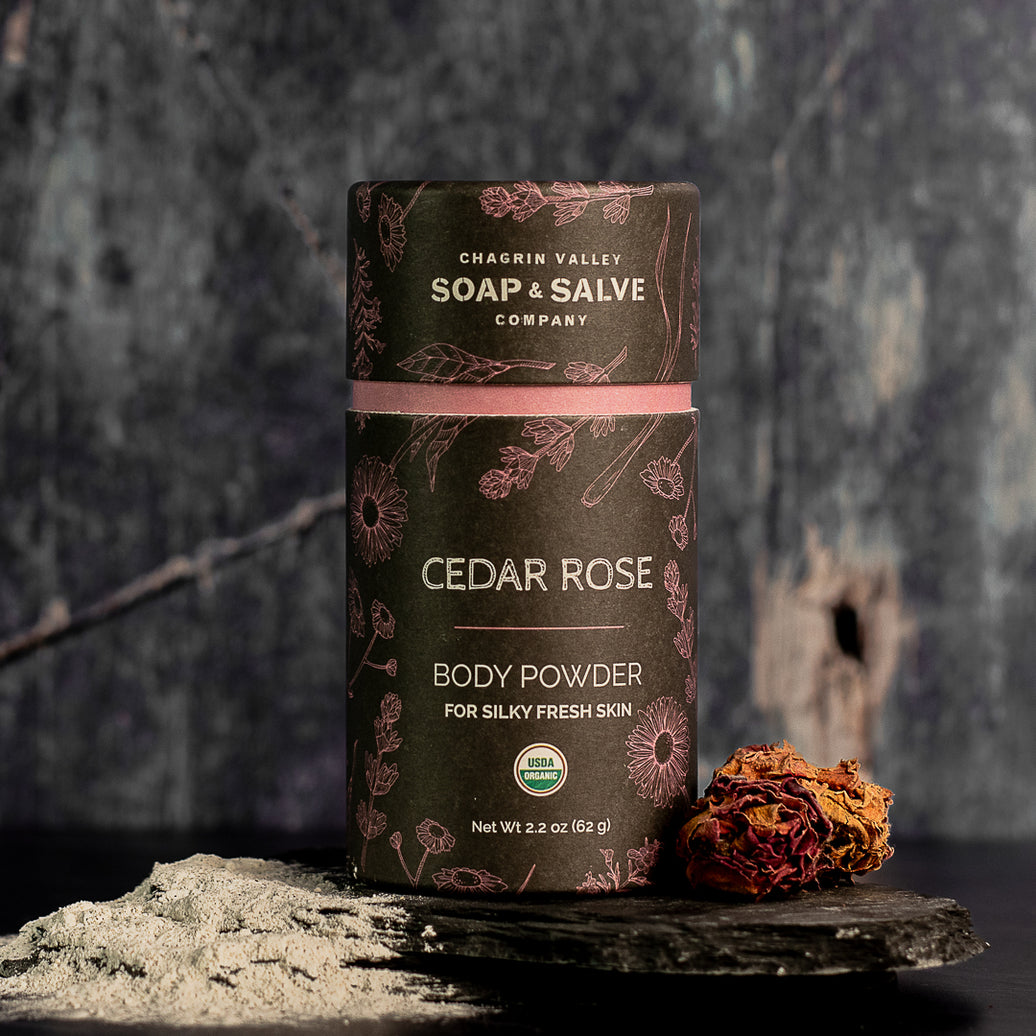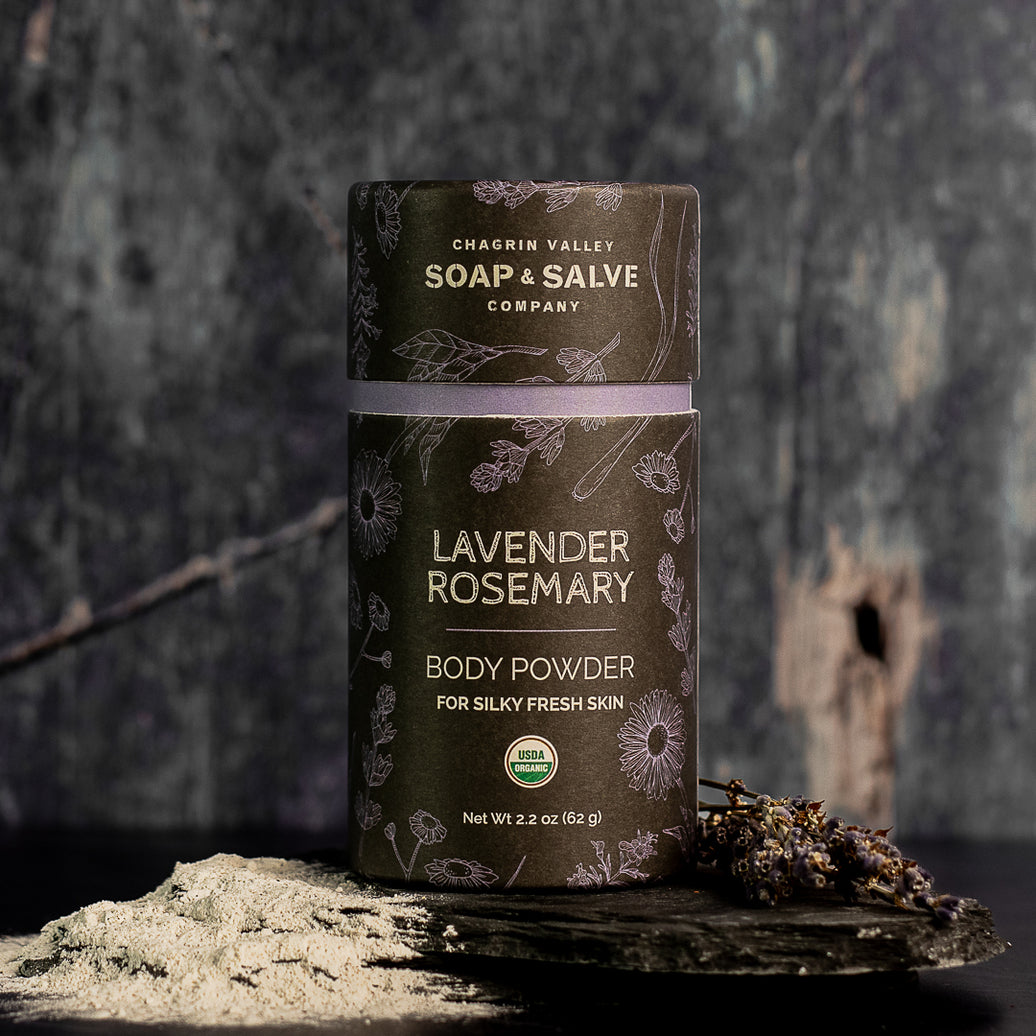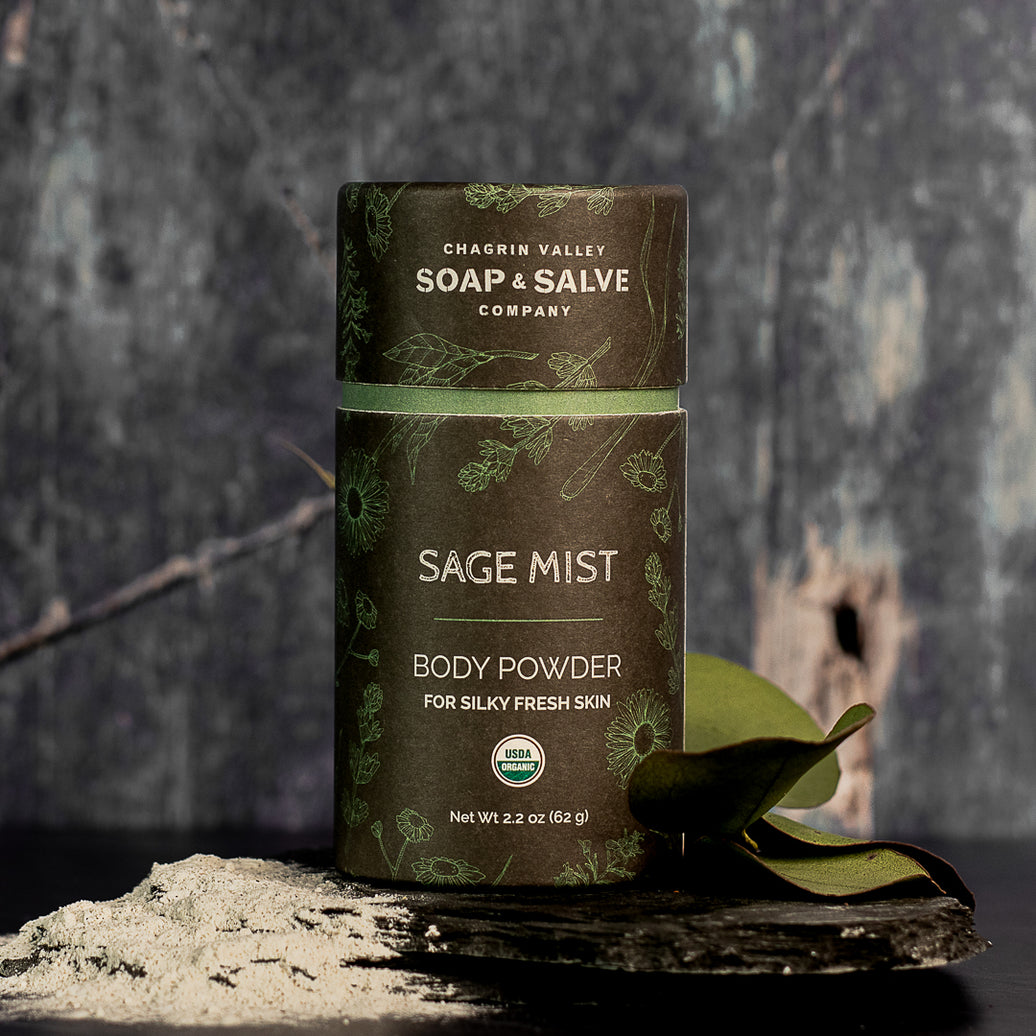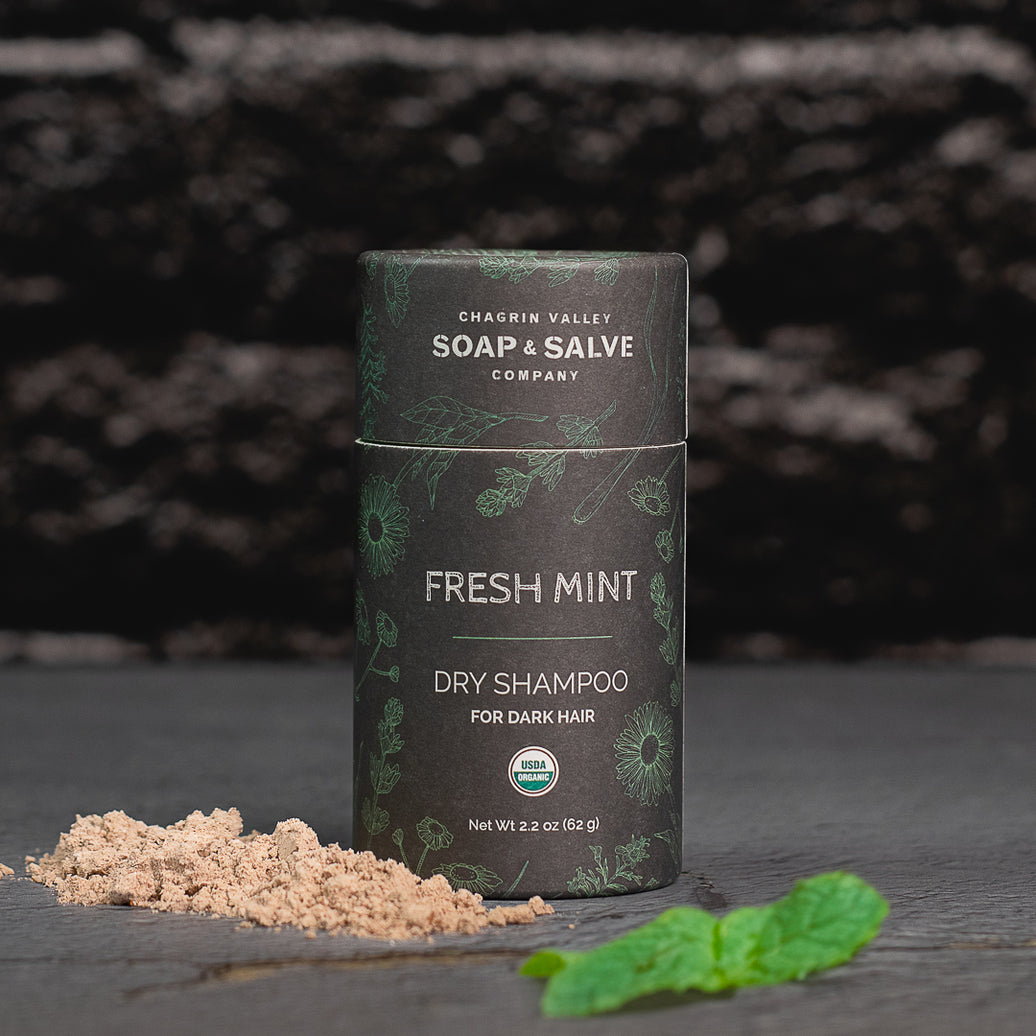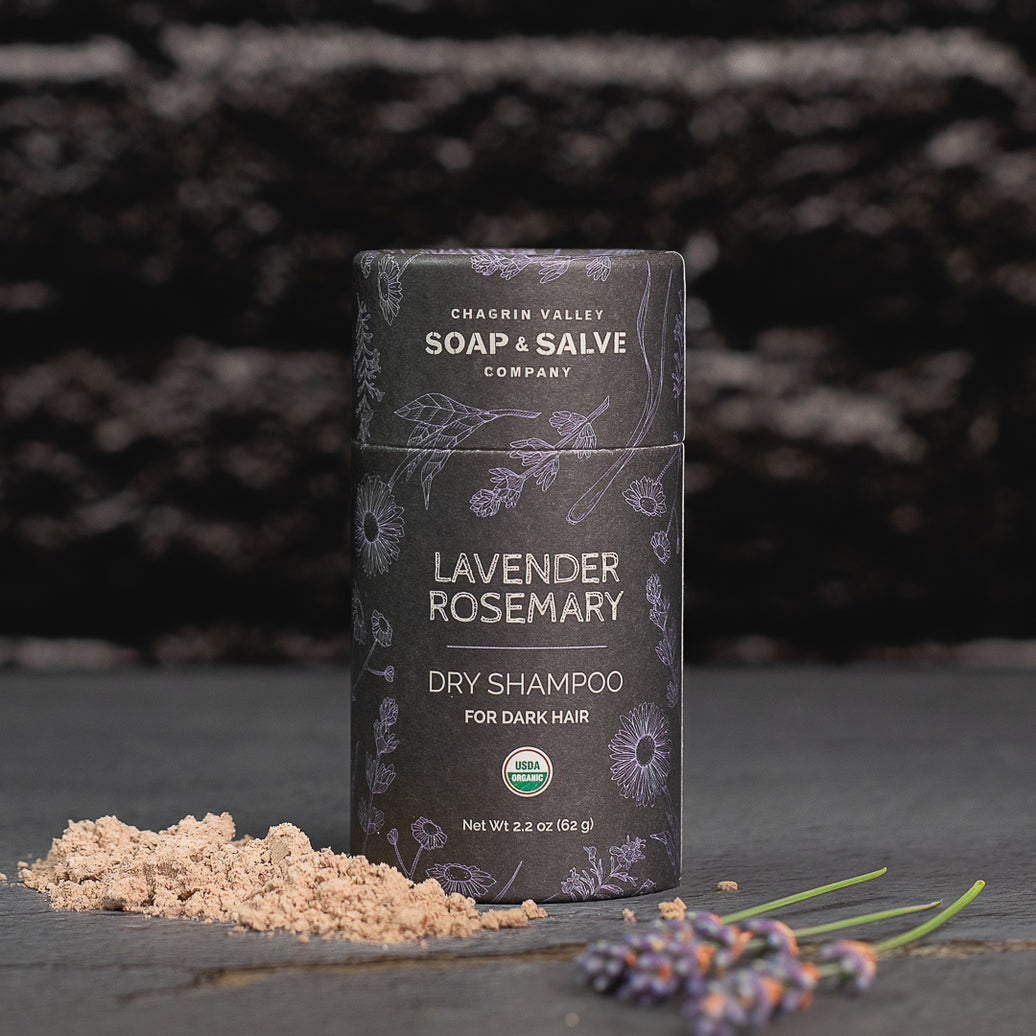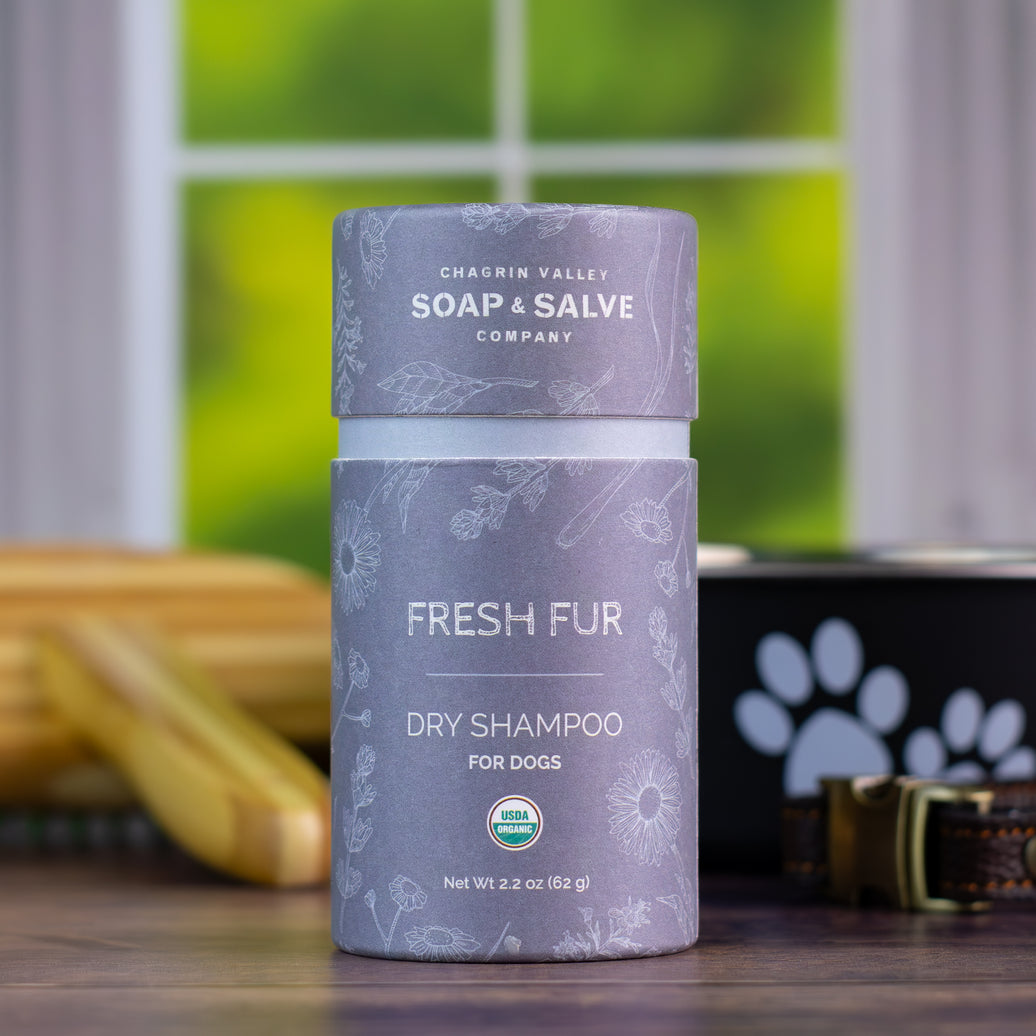Plantain, Plantago major, one of the most widespread wild herbs, is found along with dandelions and other plants we call weeds. Plantain likes to grow by the sides of roads and through cracks in the sidewalk and probably grows in your yard. You can easily harvest plantain leaves from the wild, just be sure they have not been sprayed with pesticides. Once you know what to look for, plantain is fairly easy to identify.
The leaves, rich in mucilage, salicylic acid, and tannins, aid in the healing of wounds, burns, and bruises. It moisturizes the skin and is one of the most effective anti-itching herbal remedies available, which makes it great for easing the discomfort of poison ivy. If you are hiking in a field (a nice clean area!), chew up a fresh leaf of plantain and apply it to a bug bite to calm the itch. Or make your own anti-itch tea using plantain leaves which can be sprayed on bites to ease the itch.
Medicinal use of plantain dates back to Alexander the Great. The Greek medic Dioscorides boiled and used the seeds to cure inflammation and the wounds of burn patients. Poultices are made from fresh leaves and applied to bee stings and slow-healing wounds. Plantain is a wonderful healer, and it also works on wounds by drawing out poisons, and debris.
Ointments are used for wounds, burns, and hemorrhoids. Common Plantain is often called "soldier's herb" because it has been used over the centuries to treat battlefield wounds.
In hair care, it moisturizes the scalp and is one of the most effective anti-itching herbal remedies available. It is a good scalp stimulant and is used in many hair loss treatments.
